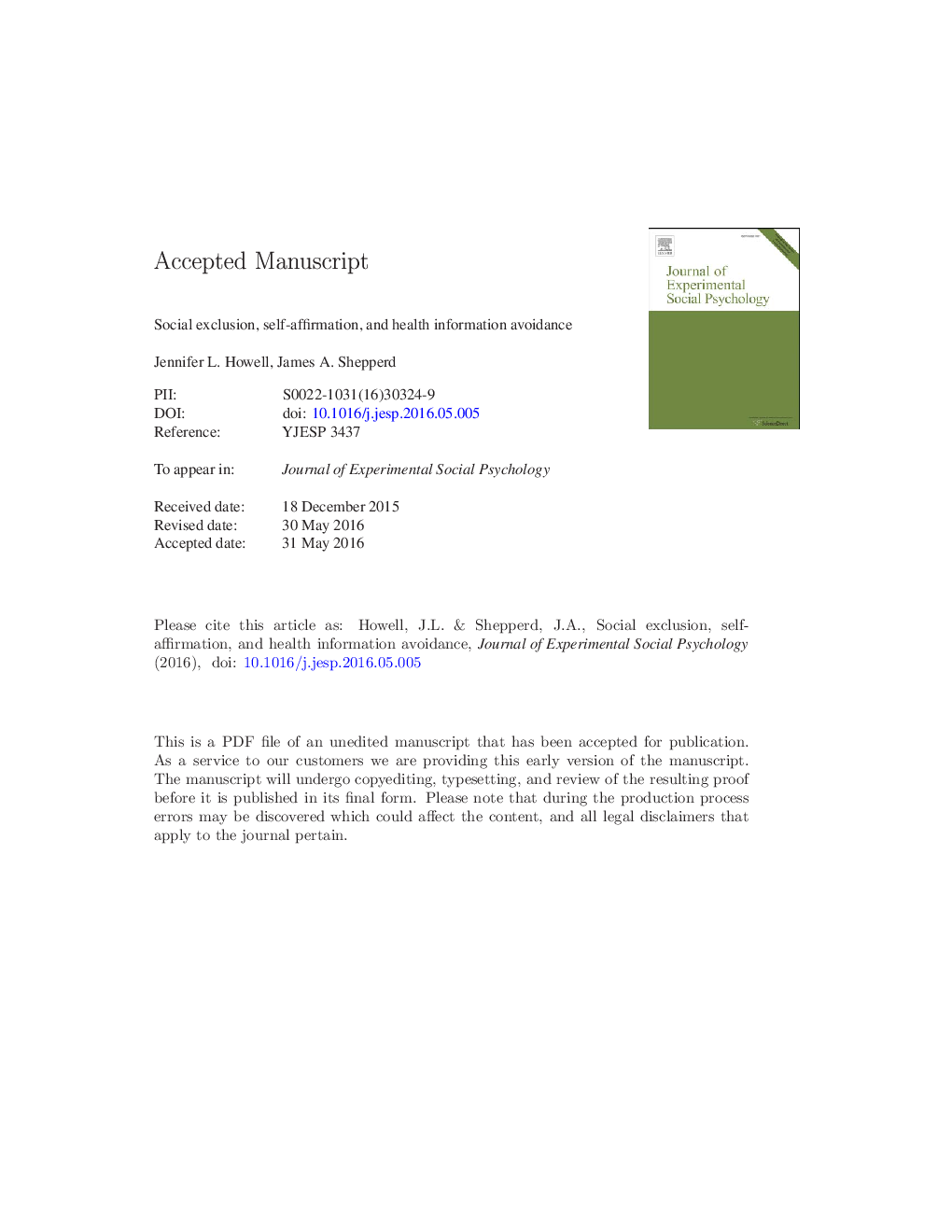| Article ID | Journal | Published Year | Pages | File Type |
|---|---|---|---|---|
| 7324353 | Journal of Experimental Social Psychology | 2017 | 28 Pages |
Abstract
Although early detection of disease is key, people sometimes opt to avoid learning personal health information. Correlational research suggests that people will avoid health information if they lack social support. In the present study, we aimed to investigate this social motive for health-information avoidance experimentally. We examined whether social rejection might prompt health information avoidance and whether self-affirmation could temper this effect. Participants who were either rejected or included in an online game (Studies 1 & 3) received the opportunity to learn their risk for a disease. Participants who were recently rejected were more likely to avoid learning their risk. Conceptually replicating earlier work, participants who thought about their own demonstration of a personal value (i.e., who self-affirmed) were less likely to avoid information (Study 2 & 3). Affirmation did not moderate the effect of exclusion on avoidance suggesting the affirmation and exclusion operated independently, but in opposite directions (Study 3).
Related Topics
Life Sciences
Neuroscience
Behavioral Neuroscience
Authors
Jennifer L. Howell, James A. Shepperd,
